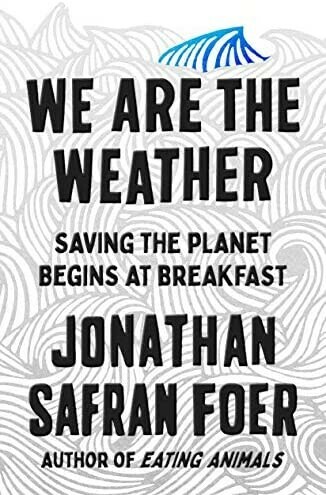Eat plants for the planet

January is a time when many of us feel a surge of interest in taking up new projects and making improvements in ourselves and our world.
So, what if I told you that there is a project you can undertake that would, in one fell swoop, dramatically lower your risk of major life-threatening diseases, reduce the suffering of millions of your fellow creatures and help slow climate change?
What’s more, this project is cheap and requires little time and no special equipment.
Wow, what a deal, eh?
The project is: Eat Plants. Yup, it’s that simple. Even if you don’t go full-on vegan, switching to a diet that is mostly plant-based has a list of benefits as long as my arm. And anyone can do it, no matter how busy you are, no matter what your food budget is.
By now, most people have an inkling of the health benefits of eating more plants, and the benefits for animals are pretty obvious. But what is not so widely known is that switching to a plant-based diet is one of the most consequential actions you can take to protect the environment and the climate.
This is the message of We Are the Weather: Saving the Planet Begins at Breakfast by Jonathan Safran Foer. In this very personal and urgent memoir, Foer makes a compelling and science-supported argument for changing the way we eat, summing up the challenge in this breath-taking passage:
“Climate change is the greatest crisis humankind has ever faced, and it is a crisis that will always be simultaneously addressed together and faced alone. We cannot keep the kinds of meals we have known and also keep the planet we have known. We must either let some eating habits go or let the planet go. It is that straightforward, that fraught. Where were you when you made your decision?”
Foer condenses his extensive research into succinct, readable one- or two-page chapters with bullet points – you can’t miss the message here, it is spelled out so clearly.
For example, some of the chapter titles are Not All Greenhouse Gases Matter Equally, Why Deforestation Matters, Animal Agriculture Is a/the Leading Cause of Climate Change, Not All Actions Are Equal, Not All Foods Are Equal, and How to Prevent the Greatest Dying.
The terse information points include the following:
“Livestock are the leading source of methane emissions. . . Livestock are the leading source of nitrous oxide emissions. . . .Animal agriculture is the leading cause of deforestation. . . The Food and Agriculture Organization (FAO) of the United Nations asserts that livestock are a leading cause of climate change, responsible for approximately 7,516 million tons of CO2e emissions per year, or 14.5 percent of annual global emissions. . . We do not know for sure if animal agriculture is a leading cause of climate change or the leading cause of climate change. We know for sure that we cannot address climate change without addressing animal agriculture.”
In the section “Not All Actions Are Equal,” Foer notes:
“The four highest-impact things an individual can do to tackle climate change are eat a plant-based diet, avoid air travel, live car-free and have fewer children. Of those four actions, only plant-based eating immediately addresses methane and nitrous oxide, the most urgently important greenhouse gases. Most people are not in the process of deciding whether to have a baby. Eighty-five percent of Americans drive to work. Few drivers can simply decide to stop using their cars. For Americans, 29 percent of air travel in 2017 was for business purposes . . . personal leisure flights can and must be cut, but the fact remains that a sizable portion of air travel is unavoidable. Everyone will eat a meal relatively soon and can immediately participate in the reversal of climate change.” [pp 98-9]
Foer also writes, with painful honesty, about another challenge of climate change: our experience of it as distant and diffuse, not personal. He examines in himself how difficult it is to really take the climate crisis to heart and how this hampers our ability to do what is needed.
This is where I think it may help to educate ourselves on the other, very personal benefits of plant-based diet. If we can’t do it for the Earth, maybe we can do it to reduce our risk of heart-disease, diabetes and cancer; maybe we can do it to have more time with our loved ones.
Climate change is vast and complex, the result of many interconnected forces. Our food system is not the only thing driving it, and this may cause some people to discount the value of changing their diet.
But the point that Foer drives home is, “Changing how we eat will not be enough, on its own, to save the planet, but we cannot save the planet without changing how we eat.”
The food we buy and prepare every day has to be part of the equation. The climate crisis cannot be solved without that part.
So find a reason. Find the lever that moves you, and do it – reduce or eliminate animal foods in your diet and go plant-based.
If you’re not ready to go 100 percent, start where you are. Eat plants one or two days a week. Or choose one daily meal – say, breakfast – and make it vegan.
But don’t sell yourself short, either! Literally millions of people around the world are eating a vegan diet.
It’s not that hard. You can do it too, if you want to.
Wise food writer Michael Pollan states his approach simply: Eat food. Not too much. Mostly plants. This is how we can show up for our Earth, for our climate, every day.
Bonnie Ambrosi of Duluth is a long-time vegan, food writer, vegan educator and animal welfare activist. She is also a cook at the Denfeld Whole Foods Co-op.